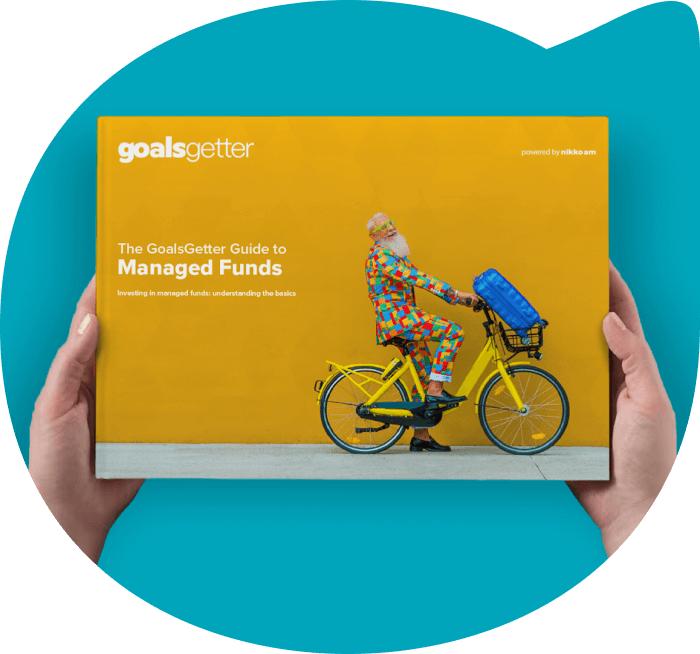01 May 2019
Learn more about actively managed funds & how they work
Are you planning to invest some of your hard-earned money? Perhaps you’re saving for a holiday? Or, maybe you’re working towards a comfortable retirement? Well, you’ve probably heard about managed funds. At the same time, though, you may have a few questions about just how they work.
What are managed funds?
With managed funds, individuals pool their money and receive units that increase or decrease in value along with the value of the fund’s assets (often shares or bonds). It’s important to note that whether units go up or down in worth, the quantity never changes. For example, if on day one you buy 100 units for $100, you will always have 100 units, regardless of how their value fluctuates.
What is the difference between active and passive funds?
Managed funds can be active or passive. This article is about active funds where a manager makes decisions about how to invest. In contrast, a passive fund follows the market index, and there is no manager to make day-to-day investment decisions.
What is your appetite for risk?
Typically, the more time you’ve got to reach your investment goal, the more risk you could take. Over time, higher-risk investments, like growth funds, should provide greater returns, but they are likely to have more ups and downs. So, if you have less time and need more certainty, funds that invest mostly in bonds and cash, with low risk and a lower return, might be best. For example, if you have 20 years before you plan to retire, a higher risk growth fund with a likely higher return might be best — you’ll have time to ride out ebbs and flows in the value of your investment. Conversely, if you plan to buy a new car in two years’ time, a low-risk, low-return fund could be more suitable.
With GoalsGetter, you can set goals and view a projection of your planned investment to see how different fund types that carry different levels of risk may perform, and impact your end balance. Give it a go now!
Why join a managed fund?
As their names suggest, there are 50 stocks in the NZX50 and 200 in the ASX200. And, when you look at investing in companies overseas, the investing world becomes a huge place.
Should you 'DIY' or engage the experts to do it for you? To answer this question, ask yourself:
- Do you have the time, knowledge and skills to research and get to know companies intimately to determine where you should or shouldn’t invest?
- If you do have the knowledge and time, do you have the connections to trade effectively every day?
- Are you able to transact in multiple countries around the world?
- Do you have enough money to invest to diversify properly? A single stock or bond may have a minimum purchase value of a few thousand dollars.
- Are you knowledgeable about reporting and tax?
What are the rules?
A fund manager can’t trade in anything that takes his or her fancy. Each managed fund has a set of parameters, agreed to by the supervisor that they must work within. With an equity fund, for example, the manager may only be allowed to trade in New Zealand equities or invest no more than a certain percentage in a single company. For a bond fund, there could be rules around the creditworthiness of the companies that a manager chooses. Within the specified parameters, though, the fund manager is free to buy and sell what they like for the benefit of the unit holders. You can often find out what the parameters are by reading a summary in a fund's product disclosure statement (PDS) or Statement of Investment Policy and Objectives (SIPO).
What are the costs?
When you buy individual stocks or bonds, you might pay some brokerage, but once you own them, generally speaking, other than tax, there are no other expenses.
Conversely, managed funds have two kinds of costs: fees and expenses. So, look for the TER (total expense ratio) that shows all fees and expenses together. Thankfully, the disclosure of the total cost of funds is improving all the time.
An explanation of fees and expenses:
- Fees: You pay a management fee for the work that the fund manager does. This will vary, usually between 0.5% to 2.5% per year, depending on the complexity of the product and type of assets, and is calculated daily based on the value of your assets. Typically, fees for higher-risk or bespoke funds are higher than more 'vanilla' options, like bonds or cash.
- Expenses: These cover the general costs of running the structure of a fund, such as unit pricing and trustee, custody, audit and legal fees. Some are fixed, and if you're in a small fund, they might be high. Conversely, if your fund is large, the expenses can almost get lost in the rounding.
When investing in actively managed funds, you can match them with your goals and appetite for risk. And, because they’re actively managed, you benefit from a manager’s knowledge and connections.
Nikko Asset Management New Zealand Limited (Company No. 606057, FSP22562) is the licensed Investment Manager of Nikko AM NZ Investment Scheme, Nikko AM NZ Wholesale Investment Scheme and the Nikko AM KiwiSaver Scheme. This material has been prepared without taking into account a potential investor’s objectives, financial situation or needs and is not intended to constitute personal financial advice, and must not be relied on as such. The Product Disclosure Statements are available on our website: https://www.nikkoam.co.nz./invest/retail.
.jpg?width=754&name=iStock-518184870%20(1).jpg)


.webp?width=362&name=green%20coins%20(1).webp)
